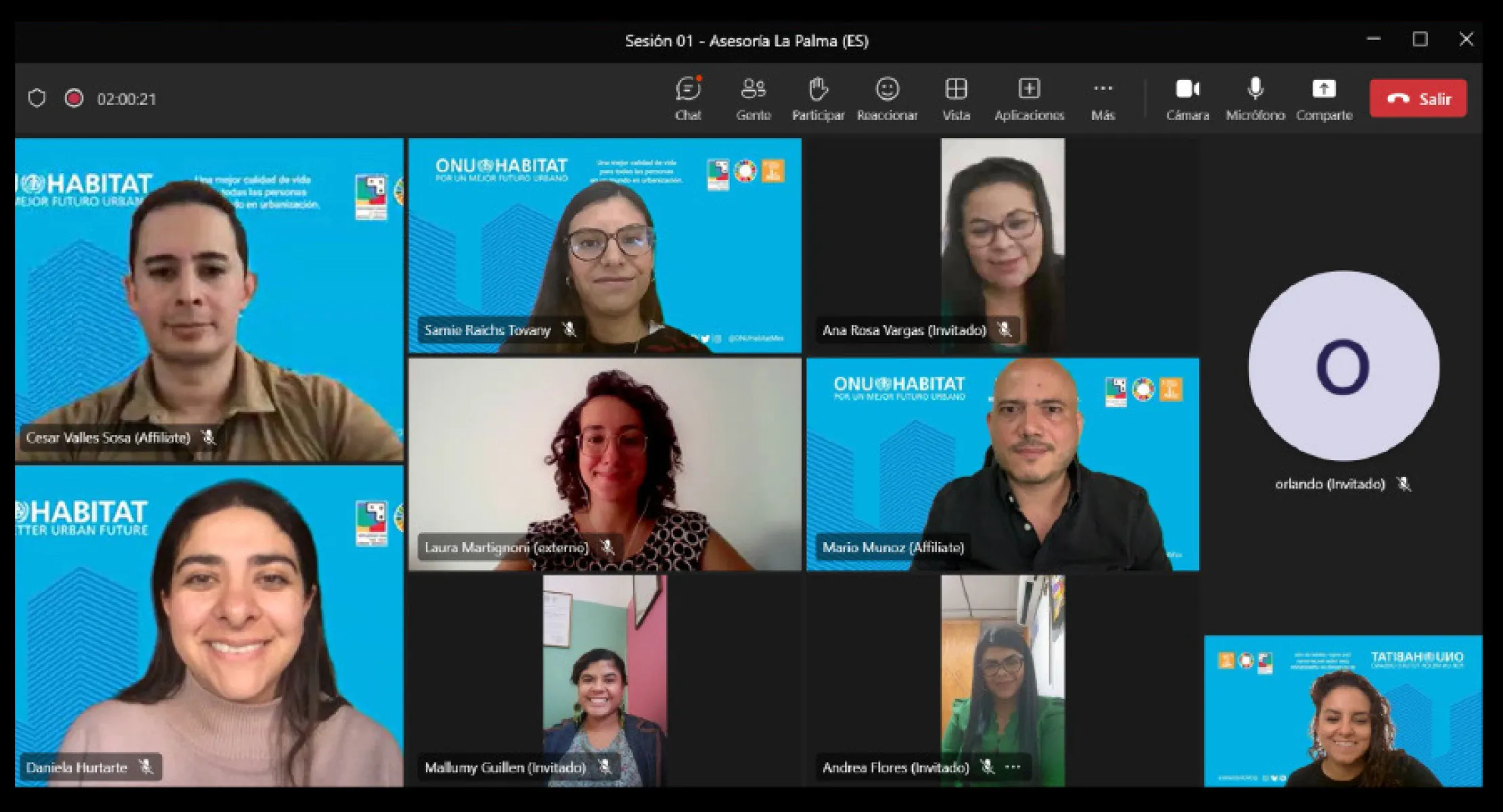Ciudad Juarez 2040 City Vision
Introduction

As part of the Regional Program for Post-pandemic Recovery and the Implementation of the New Urban Agenda in Central America and the Dominican Republic, capacity-building sessions have been implemented aimed to provide tailored advisory services to small municipalities in Central America.
Our City Plans team participated in the sessions with the municipality of Soyapango in El Salvador, that received technical guidance concerning urban development, climate change, and Nature-based Solutions, and the municipality of Quimistán in Honduras, that received advice focused on zoning, inclusive urban expansion, and disaster risk reduction.
During both sessions, participants were introduced to diverse tools and methodologies from UN-Habitat, including "Our City Plans Central America", with the objective of showcasing its practicality and implementation potential. As part of the outputs, the goal will be to jointly revise how the platform's activities and tools could be effectively implemented to facilitate the urban planning process of each municipality, considering their unique contexts and technical skills.
Furthermore, the municipality of La Palma, El Salvador expressed their growing influx of tourism and interest on finding ways to solve its highly coveted public space. This could be translated into the definition of Sectorial Plans, such as mobility and public space. In order to be able to work on these plans it was suggested to develop first a Strategic Development Plan, in which a Vision and clear project portfolio would allow them to acquire finance for both sectorial plans.
Introduction
The project supported to the preparation of the Municipal Planning Guideline for the rapidly urbanising municipalities in Kathmandu Valley, which have valuable cultural heritage and immense potential for promoting sustainable tourism. The municipality-wide Guideline was based on the already existing normative knowledge products prepared by UN-Habitat HQ (Our City Plan and Urban Planning for City Leaders), which are customised/localised to guide the planning of the heritage settlements in Kathmandu Valley.
Introduction
The Spatial Development Framework (SDF) for Johannesburg 2040 is a city-wide spatial policy document identifying the main challenges and opportunities in the city, setting a spatial vision for the future city, and outlining a set of strategies that would lead to the realisation of that vision.
Introduction
¡3, 2, 1...! The launching of the digital platform of Our City Plans Centroamerica took place on May 2nd with the Secretariat for Central American Social Integration (SISCA) in Belize City. This platform is part of the Central America and Dominican Republic Capacity Building program, within the framework of the host country's Pro Tempore Presidency of the Central American Council on Housing and Human Settlements (CCVAH).
Introduction
UN-Habitat developed the project "Development of sustainable and resilient cities and communities in Neuquen Argentine Province", together with the Secretariat of Planning and Action for Development (COPADE) of the Government of the Province of Neuquén and financed by the Federal Investment Council of the Argentine Republic (CFI). The project included different products elaborated in collaboration with the United Nations Office for Project Services (UNOPS) and UN Women.
Introduction
UN-Habitat developed the project "Development of sustainable and resilient cities and communities in Neuquen Argentine Province", together with the Secretariat of Planning and Action for Development (COPADE) of the Government of the Province of Neuquén and financed by the Federal Investment Council of the Argentine Republic (CFI). The project included different products elaborated in collaboration with the United Nations Office for Project Services (UNOPS) and UN Women.
Introduction
UN-Habitat developed the project "Development of sustainable and resilient cities and communities in Neuquen Argentine Province", together with the Secretariat of Planning and Action for Development (COPADE) of the Government of the Province of Neuquén and financed by the Federal Investment Council of the Argentine Republic (CFI). The project included different products elaborated in collaboration with the United Nations Office for Project Services (UNOPS) and UN Women.